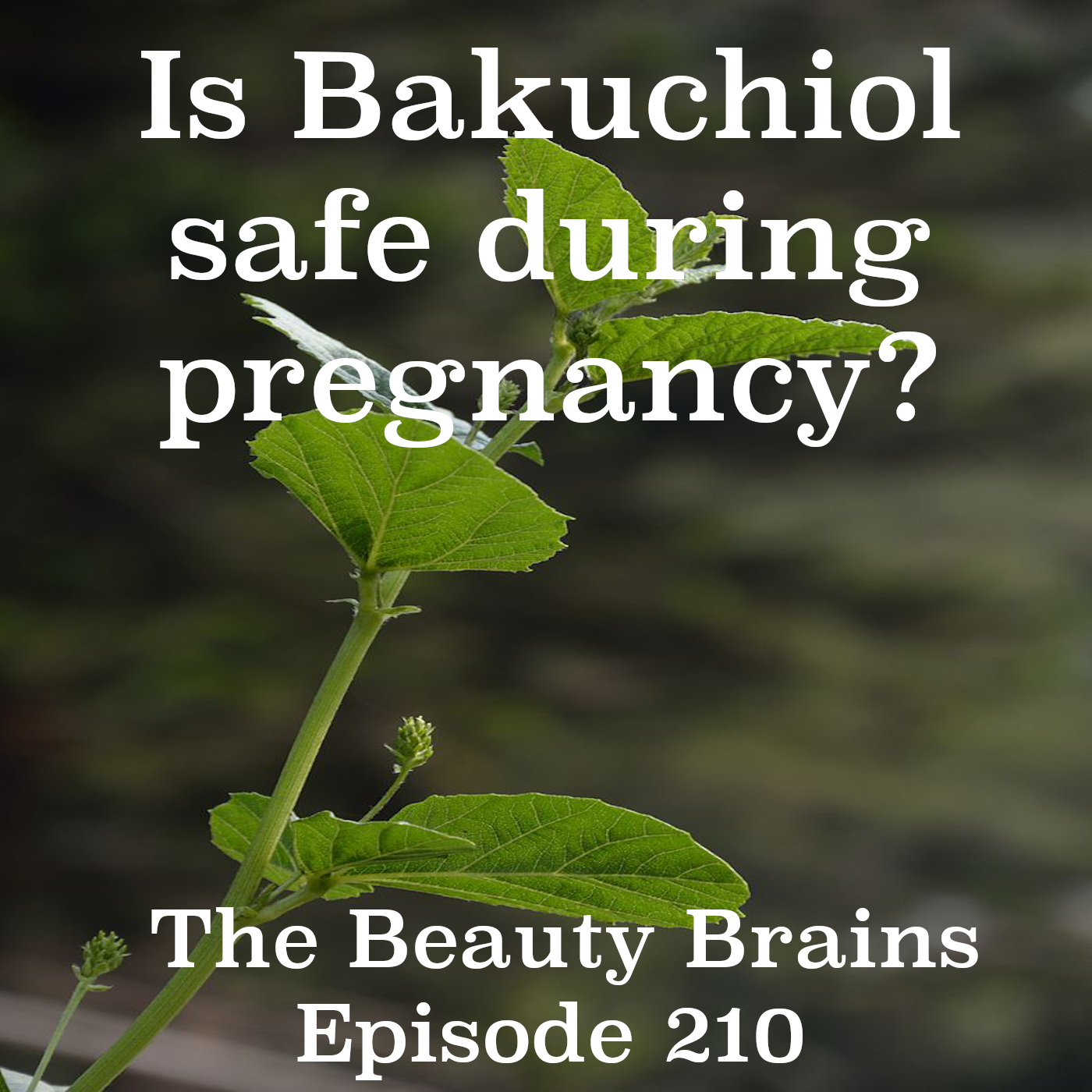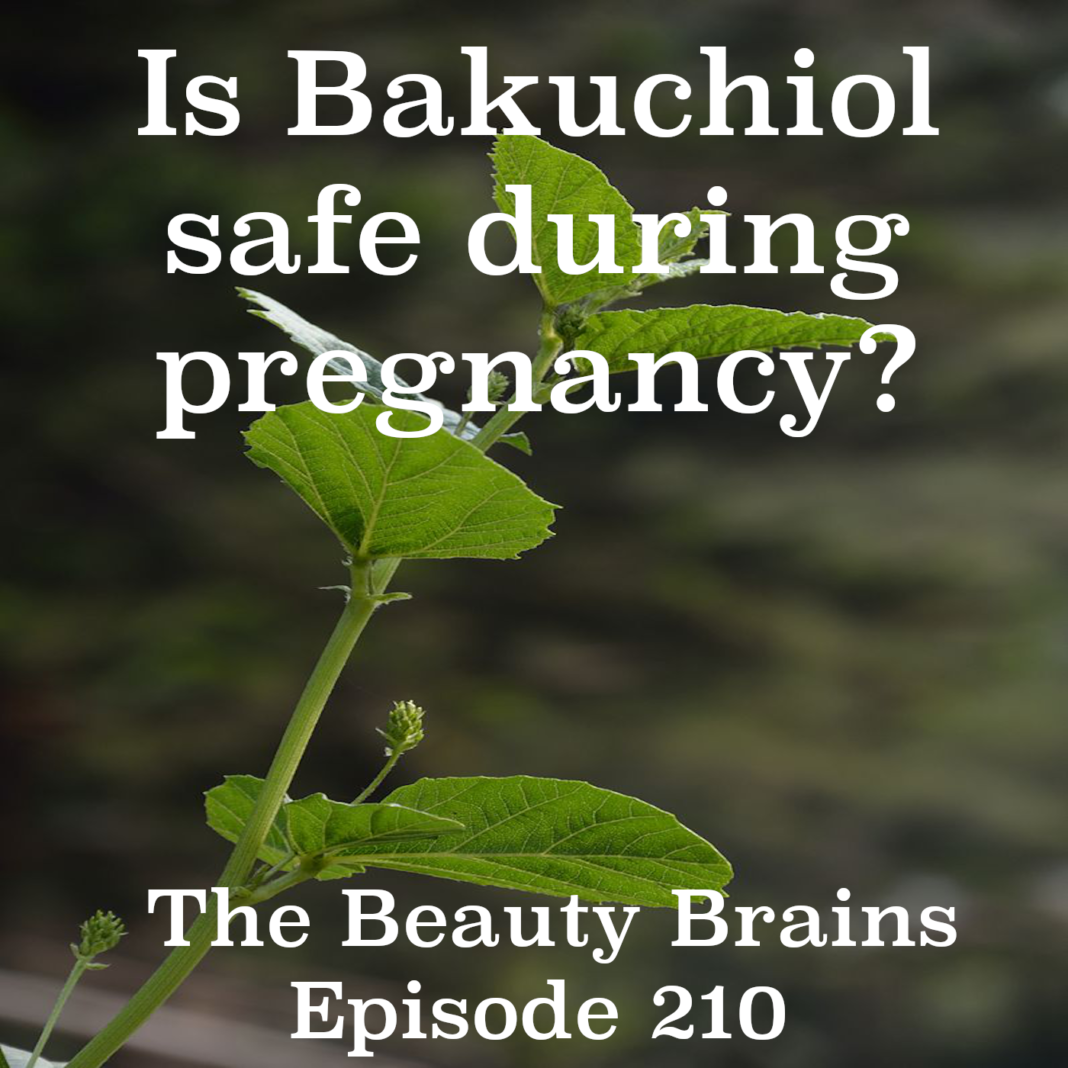




We’ve got a fully packed program today. We’ll be covering a couple of cosmetic science news stories, catching up from my hiatus and answering questions about…
- Is silicone suffocating hair and causing hair loss?
- Do proteins in nail products strengthen nails?
- What is goat’s milk doing in soaps and more?
- What’s an affordable version of Skinceuticals Triple Lipid Restore?
- Is Bakuchiol safe during pregnancy?
LA trip chat – Eco well sustainable beauty panel
Beauty Science News #1
Is Deva curl making people’s hair fall out?
Revlon teams up with the EWG
Hallmark Channel rant
Question 1 – Audio
Jemma – Do silicone suffocate the hair and cause hair loss? Is there any element of truth to this?
In short, no they don’t. In long, silicones is a term for a large class of molecules featuring a silicone backbone, but they can have so many different properties and are functionalized to do different things. Some silicones are volatile and are used for slip and glide of a formulation. Others are functionalized to stick to the hair and aid in color or thermal protection, but can be washed off. Other silicones can provide temporary substantivity to prevent frizz – really a whole gamut of functionalities are possible through silicone chemistry!
Now, can they cause hair loss? Hair loss can be caused by a variety of things, which we’ve covered extensively in previous episodes, including Episode 193. I think the myth that silicones cause hair loss is perpetuated by the fact that some silicones are substantive – meaning, they’re designed to build up and provide some benefit. Amodimethicone is one of them – it’s a wonderful color protectant! However, that does not mean silicones cause hair loss. If we have learned anything from the Devacurl discussion, it’s that it is important to occasionally use a clarifying shampoo and cleanse the hair and scalp.
Bottom line – silicones to not suffocate the hair and cause hair loss. Silicones are a wide class of molecules that can provide great benefits!
Question 2
Laurie asks – I have Hyperthyroidism. I play the guitar so my finger nails on the left hand are short and I’m trying, still, to grow the nails on my right hand (I play Classical). Nails are very important for this type of guitar playing. The nail on the thumb on my left has cracked deep – bear in mind it’s already short, so I put clear nail polish on it: Sally Hanson Ultimate Shield. I read that a nail polish with protein strengthens the nail. NONE OF THEM show the ingredients. Do I use OPI Nail Envy like my hair dresser recommends – or something else?
Let’s talk about nail strengtheners. A nail strengthener polish is one that can help recondition your nails. Nail strengthener ingredients that actually have an impact include ethyl acetate, butyl acetate, nitrocellulose, and tosylamide formaldehyde resin. Things like protein are just claims ingredients that don’t actually do the work. You can try a product like the Sally Hanson MEGA STRENGTH HARDENER. It’s got the ingredients that actually put a strengthening coating on the nail. No proteins but the proteins really don’t do much. In truth, nail polish technology hasn’t changed much in a lot of years so any product that says it’s going to strengthen nails (as long as it uses nitrocellulose & the other ingredients I mentioned) it should help keep your nails strong.
Question 3
Sheila asks, “You guys are absolutely fantastic. Your knowledge on all things beauty is astounding. I always learn something from the two of you. But, I was wondering what your thoughts are on Goat’s Milk and its use in soaps, body washes, shampoo and conditioners?
Goats milk is rich lipids, mostly triglycerides, and a small portion of phospholipids and sterols. The fatty acids in the milk are mostly medium chain fatty acids, which are C8-C14 in length. People say that goats milk moisturizes and nourishes the skin – I would probably agree. Goats milk also may contain proteins that have good film-forming properties, leading to hydration on skin. I’ve even seen where some claim the lactose in goat’s milk is responsible for hydration. Maybe! A few brands using goats milk tout it is high in lactic acid, which is an alpha hydroxy acid that aids in exfoliation of skin. If you listen to Episode 181, it’s unlikely that Goat’s Milk will provide any exfoliation benefit as it will not contain a lot of free lactic acid.
Kate Sommerville is one large skincare brand that features goats milk as an active ingredient, but for the most part it’s mostly used in homemade or hand-crafted cosmetics. As a formulator working at a large company, there is not only a push to use ingredients free of animal by-products, but using goats milk can be difficult to work with. It is typically supplied as a powder and has to be solubilized in a formula. It is typically off-color, which also is a challenge. Additionally, because of the composition, can add complexity to preservation. Finally, while there are some alluring benefits to using goats milk, there are many more ingredients that provide more benefit to goats milk at a lower use level or don’t create formulation challenges. Personally, I also have a hard time using an ingredient from a food chain.
Question 4
Katherine says – Hi. I was wondering if there’s a more affordable alternative to this Skinceuticals Cream. Thank you. Skinceuticals Triple Lipid Restore 2:4:2
Let’s look at what’s in the formula. They do have this long ingredient list, 37 ingredients by my count. But, if you get rid of all the “fluff” ingredients & the non-functional things like preservatives & adjustment ingredients, there are just a few ingredients that make the product work. These include Dimethicone (that’s the occlusive agent), Hydrogenated Polyisobutene (an emollient), and Glycerin (the humectant). Oh and to live up to the 2:4:2 claim they have 2% ceramide 3, 4% cholesterol, and 2% sunflower seed oil. Of course, with the first three ingredients there doesn’t seem to be much reason to have the next three. In my view these are just claims ingredients that aren’t actually having much effect, especially when you have those other ingredients in there.
That’s the thing about when they test ingredients like ceramides, and things. They don’t test them against ingredients like dimethicone or petrolatum. They test them against poor placebos so they can show a significant impact. In my view, topical ceramides have not been proven to be worth spending money on.
So, what are some options? If you share my opinion that the only thing having a significant impact on the performance of this product is the first three ingredients, Dimethicone, Hydrogenated Polyisobutene and Glycerin, then I’d say look for products with those ingredients. Olay regenerist. It’s got Glycerin & Dimethicone and even has a peptide, niacinamide, and hyaluronic acid. Those are nice for label copy but it is really the first couple ingredients that are going to have the effect.
Question 5 – Audio Question
Bakuchiol – an alternative to retinol. Retinol is not safe during pregnancy and breast feeding? Is bakuchiol safe during pregnancy and breast feeding?
The question of whether retinol is safe during pregnancy is not so cut and dry as it’s either safe or not. All the advice you’ll see online is that you shouldn’t use them since there is concern that retinoids can have teratogenic effects (which means they can affect the development of a fetus). Of course, there is not any evidence that topical application is a problem but it’s a case of better safe than sorry though. Since there are other options, doctors just recommend you avoid using them while pregnant. Seems a reasonable precaution.
Anyway, that brings us to the question of bakuchiol. There’s an article published in Allure that says that “Unlike retinols, bakuchiol is completely safe to use while pregnant or breastfeeding” And you’ll see similar things said on parenting and mommy blogs. But the reality is that this ingredient hasn’t been tested so those claims are overly optimistic if you ask me. There is actually good reason to avoid bakuchiol since it hasn’t been safety tested for use during pregnancy. It may be fine but until safety testing is done, I wouldn’t recommend it.
Also, bakuchiol is a natural plant extract which means you have no idea about the purity of the ingredient that a company is using. There are no good analytical tests to demonstrate that a company is even using bakuchiol extract. They could be just purchasing brown water spiked with retinol. Companies wouldn’t really know. As you can tell, I’m super skeptical of natural extracts.
The other thing is that the benefits of bakuchiol are way over hyped. The available evidence just does not support their use as a good alternative to retinoids. There are a couple of small studies that show some equivalence but these haven’t been replicated and there is just so much more evidence of retinoids working. I remain skeptical.
So, if you’re pregnant, stick with proven safe ingredients like benzoyl peroxide and salicylic acid. Bakuchiol may be perfectly safe but it’s better to avoid it just to be cautious. I also wouldn’t take product safety advice from mommy blogs and the Internet. Or even a science podcast for that matter. Talk to your doctor about this and then avoid using it.
Follow the Brains
Thanks for listening. Hey if you get a chance can you go over to iTunes and leave us a review. That will help other people find the show and ensure we have a full docket of beauty questions to answer.
ASK A QUESTION – If you want to ask a question click this link or record one on your phone and send it to thebeautybrains@gmail.com
Social media accounts
on Instagram we’re at thebeautybrains2018
on Twitter, we’re thebeautybrains
And we have a Facebook page.
Support the Beauty Brains!
The Beauty Brains are now on Patreon! Help support us to continue to make episodes.
Thanks again for listening and remember Be Brainy about your Beauty


